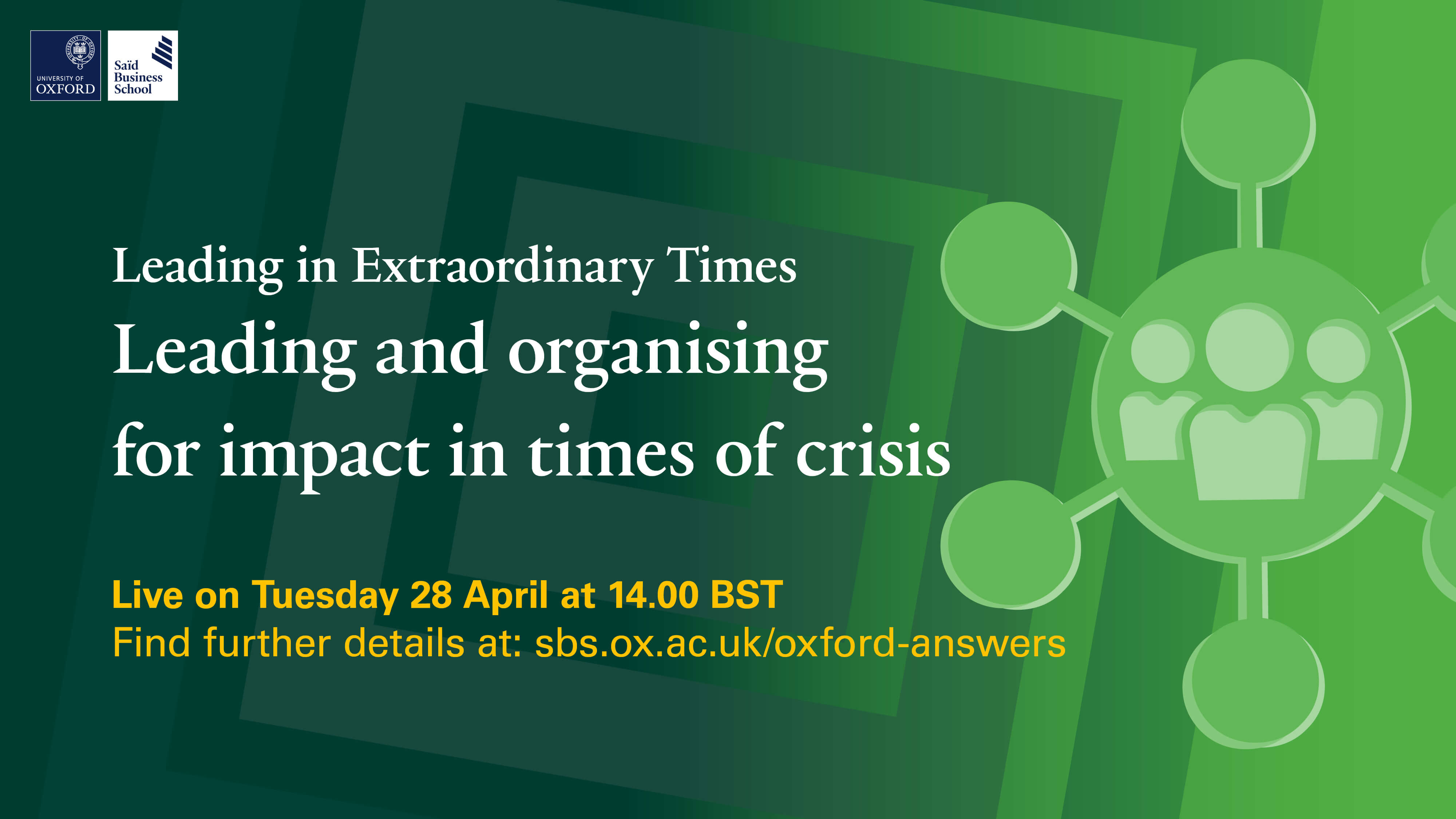Leading and organising for impact in times of crisis

Led by Tim Morris, both Marya Besharov and Eero Vaara from the School’s organisational behaviour group offered insights into leadership practices that might achieve meaningful and lasting organisational and social impact during the COVID-19 pandemic. These include creating guardrails to hold your organisation to its most pressing priorities and values, allowing you to make dynamic decisions to adapt to rapidly changing circumstances. The panel also explored the way to manage individual, organisational and national identity challenges, using narratives to develop a sense of the possible.
Summary
Crises like Covid-19 can become opportunities to clarify brand purpose, build support for strategy work, create stronger, more resilient and agile organisations, and redefine what leadership really means.
That was the outcome from a discussion on Leading and Organising for Impact in Times of Crisis, between Marya Bersharov, and Eero Vaara, Professors in Organisations and Impact.
The panel, chaired by Tim Morris, Professor of Management Studies, discussed how today's leaders should help their own organisations, and others, to make sense of crises and guide the response.
While they have to deal with urgent demands, leaders should resist the temptation to be overly directive, or commit to a single course of action. Instead, they should involve a wider, more diverse group of stakeholders in 'distributed,' leadership. Leaders should also create 'safe spaces,' in which stakeholders feel comfortable expressing ideas, and where solutions emerge over time, said the panel.
Other tips for leaders include:
- Create a shared story – Try to work through uncertainty and ambiguity to create an agreed version of the past, present and future
- Set boundaries – Set parameters for the discussion to help to accommodate conflicting views. Try to view tensions as opportunities for dialogue
- Make dynamic decisions – Revisit and rethink the approach regularly
- Apply empathy to teams, and yourself – Recognise that dealing with conflicting demands makes people feel anxious. Apply self-care so you have capacity to deal with challenges
- Avoid politics – Try not to withdraw, hide facts, over-react, or play the blame game.





